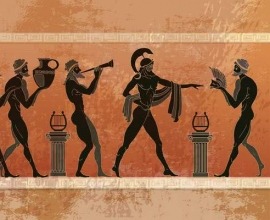The History and Origins of Medical Tourism
Medical tourism is a form of health tourism and refers to individuals who travel outside of their home country in order to seek medical treatment in another country.[1] Traditionally, it was individuals from less-developed countries who would travel to renown medical centers in highly-developed countries for medical purposes. However, in recent times, the trend has shifted, with individuals from developed countries traveling to less-developed countries, due in part to factors such as cost considerations and the absence or leniency of certain rules and regulations regarding a specific medical treatment.[2]
The assumption that medical tourism is a contemporary construct is a common misconception - the concept of medical tourism actually dates back to ancient times; and it can be argued that it is a concept that is as old as medicine itself.[3]
The idea of traveling for medical purposes finds its roots all the way back to the people of Sumer in 4000 B.C.. Sumer was an ancient civilization found in southern Mesopotamia, now known as southern Iraq.[4] For the Sumer people, medical tourism involved visiting mineral water springs and temples on elevated sites.[5] Health complexes were built near or around these sites to promote the benefits of the temple baths and mineral water springs.
The Ancient Greeks and Romans were also civilizations that integrated the concept of medical tourism into their healthcare systems. Numerous resorts with thermal bath spas and therapeutic temples were abundant in the Greek and Roman domains. The concept of using mineral spring waters to boost health and treat ailments has evolved into what we now call "spas", a word which is actually an abbreviation from the Latin, "Salus per Aquam", which means "health by water."[6]
The Greeks in particular were known for flocking to a terrain in the Saronic Gulf called Epidauria - now considered to be the birthplace of medical tourism.[7] In accordance with Greek mythology, Epidauria was the haven of the Greek God of Medicine, Asclepius, who symbolized the therapeutic sides of Medical Arts; and temples were erected in this area to honor him - they were commonly known as Asclepion.[8]
Epidauria eventually became a hub for medical tourism with visitors traveling from all over Europe to pay homage to Asclepius in order to boost their health and wellbeing[9]; and thus, it was only common sense to build health complexes, medical centers and resort spas near and around this area to continue to boost and promote the economy of medical tourism.














